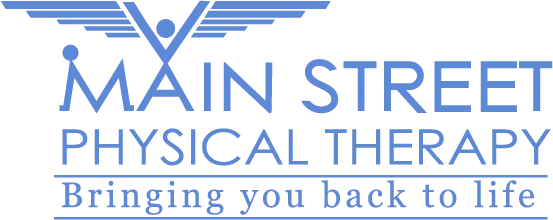The Benefits of Early Intervention in Pediatric Physical Therapy
The Benefits of Early Intervention in Pediatric Physical Therapy
Early intervention in pediatric physical therapy plays a crucial role in supporting children's development and addressing potential challenges they may face. It involves identifying and addressing developmental delays or disabilities in young children, often before they reach school age. This proactive approach can significantly impact a child's physical, cognitive, and emotional well-being. In this blog, we will explore the numerous benefits of early intervention in pediatric physical therapy and the positive outcomes it can bring to children and their families.
Identifying Developmental Delays
One of the primary benefits of early intervention in pediatric physical therapy is the ability to identify and address developmental delays at an early stage. Children develop at different rates, and some may experience delays in reaching developmental milestones such as crawling, walking, or fine motor skills. Early intervention allows healthcare professionals to assess a child's development and provide targeted interventions to address any delays. By identifying and addressing these delays early, children can receive the support they need to reach their full potential.
Preventing Secondary Issues
Early intervention in pediatric physical therapy can help prevent secondary issues that may arise from untreated developmental delays. For example, a child with motor skill delays may struggle with activities of daily living, such as dressing, feeding, or playing with peers. Without intervention, these challenges can lead to frustration, decreased self-esteem, and potential social and emotional difficulties. By addressing these issues early on, pediatric physical therapists can help children develop the skills they need to participate in daily activities and engage with their peers more effectively.
Improved Long-Term Outcomes
Research has shown that early intervention in pediatric physical therapy can lead to improved long-term outcomes for children. By addressing developmental delays early, children have a greater chance of catching up to their peers and achieving age-appropriate milestones. Early intervention can also positively impact a child's overall development, including physical strength, coordination, and cognitive skills. Furthermore, it can contribute to improved academic performance, social interactions, and overall quality of life as the child grows older.
Supporting Families
Early intervention in pediatric physical therapy not only benefits the child but also provides essential support to their families. Parents and caregivers often experience stress and uncertainty when they notice developmental delays in their child. Early intervention services offer families access to a network of professionals who can provide guidance, support, and resources to help them navigate their child's development. By involving families in the intervention process, pediatric physical therapists can empower parents to be active participants in their child's care and advocate for their needs.
Reduced Interventions
Another significant benefit of early intervention in pediatric physical therapy is its cost-effectiveness in the long run. By addressing developmental delays early, children may require fewer interventions and supports as they grow older. Early intervention can reduce the need for more intensive and costly services in the future, such as special education, ongoing therapy, or medical interventions. Additionally, it can lead to improved independence and productivity, potentially reducing the long-term financial burden on families and the healthcare system.
Conclusion
In conclusion, early intervention in pediatric physical therapy offers numerous benefits for children, families, and society as a whole. By identifying and addressing developmental delays early, children have a greater chance of reaching their full potential and leading fulfilling lives. It is essential for parents, caregivers, and healthcare professionals to recognize the importance of early intervention and seek support as soon as developmental concerns arise. Through early intervention, we can provide children with the support they need to thrive and achieve optimal physical, cognitive, and emotional well-being.

